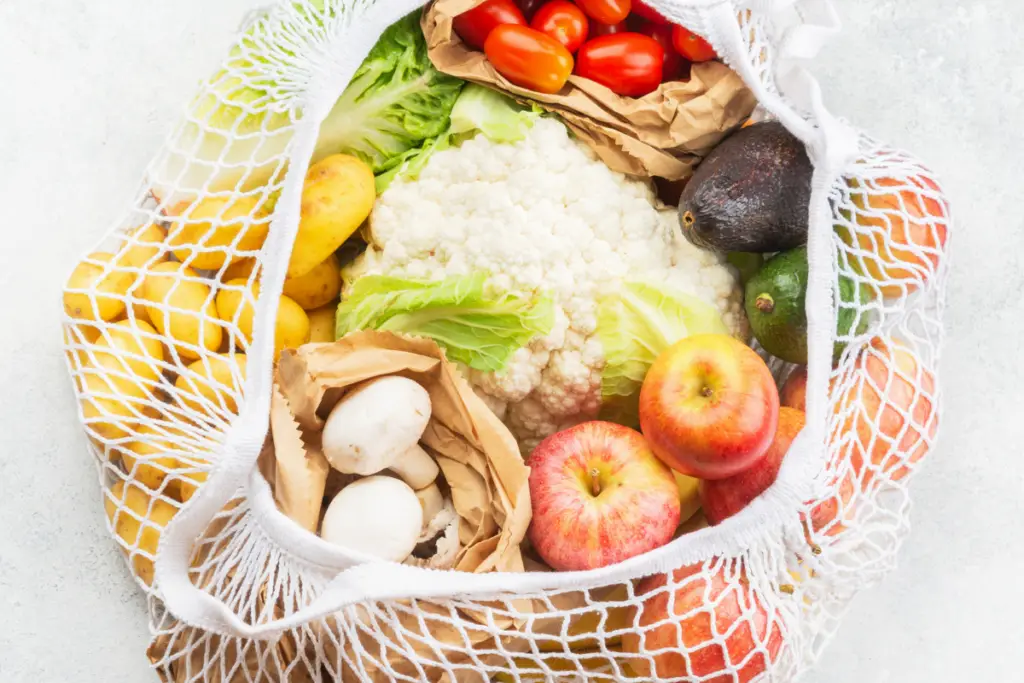Almost every item you buy regularly now has a more sustainable greener substitute. From groceries to home accessories, today’s world offers shoppers green options with a low carbon footprint. Some cities prohibit or tax the use of non-reusable shopping bags.
By joining this movement, you’re contributing to a more sustainable shopping experience. As an added bonus some grocery stores will give you credit towards your purchase for bringing your own bag. When buying something new, ask about recycling incentives for proper disposal of your old stuff, such as ink cartridges, cell phones, and even cars.
How do you know if a product is good for the environment?
Labels can help you make Earth-friendly decisions when you shop. There’s valuable information about how that item was grown, harvested, produced, synthesized, processed, tested and packaged. Knowing how to interpret labels and environmental logos helps us make informed decisions at the checkout register.
Do you have any power? Yes, it’s how supply and demand—the basis of our economic system—works. If you ask for more sustainable products, you are influencing demand. Buying a product is like voting for it. The more times you ‘vote’ for sustainable products, the more likely and quickly more options (supply) will increase.
Your voice is your wallet, and retailers will listen. The choice to buy environmentally responsible products is not always the lowest cost or easiest solution, but that will change with time. As more people buy green products, the availability will increase, and the cost will decrease.
Quick Tip! Learn to shop strategically. Make a list and only buy what you need. Overbuying—especially of perishable items—leads to unnecessary waste of food, goods, and money.
8 Savvy Ways to be a Sustainable Shopper
- Bring your own bag: When shopping, skip the paper or plastic question by bringing your own reusable bag.
- Consider organic and free range: These products are raised and processed in more humane ways. Find out more about meat labels.
- Buy less: Part of being a responsible consumer is resisting the temptation to buy. Figure out what you’ll use; buy only what you’ll need.
- Invest a little: Spend a little more for something that will last longer. In many cases, spending more for quality will save money in the long run, especially when it comes to appliances, vehicles and building materials.
- Give it a second life: Use or donate old clothes, books, sports equipment, toys, household goods and appliances. Consider purchasing these items second-hand, too.
- Ask your grocer: Let your grocer know you want more sustainable, local goods. Check out your local food co-op and support local vendors when they’re available.
- Get eco-electronics: When choosing electronics, try to buy from a manufacturer that has a program in place to take the product back and recycle it after it has reached the end of its useful life. Take advantage of recycling programs for printer cartridges and dispose of hazardous old electronics at community recycling days.
- Play fair: Fair Trade Certified products are grown, harvested and processed under strict regulations to guarantee sustainable farming. It also means that the farmers and workers work under fair labor conditions and are paid a fair price for their goods
Thrift stores, swap meets, and estate sales are great places to get clothes for costumes, sports equipment (especially for children), and household goods, books, and furniture. When buying personal care or beauty aids like shampoo, soap, and toothpaste, look for non-toxic and organic products.
More and more brands are using natural plant extracts instead of synthetic chemicals. Consider buying products that are made without animal products, like mineral makeup, and skip stuff tested on animals.

Erzsebet Frey (Eli Frey) is an ecologist and online entrepreneur with a Master of Science in Ecology from the University of Belgrade. Originally from Serbia, she has lived in Sri Lanka since 2017. Eli has worked internationally in countries like Oman, Brazil, Germany, and Sri Lanka. In 2018, she expanded into SEO and blogging, completing courses from UC Davis and Edinburgh. Eli has founded multiple websites focused on biology, ecology, environmental science, sustainable and simple living, and outdoor activities. She enjoys creating nature and simple living videos on YouTube and participates in speleology, diving, and hiking.

